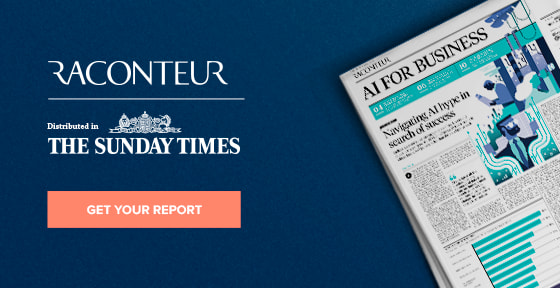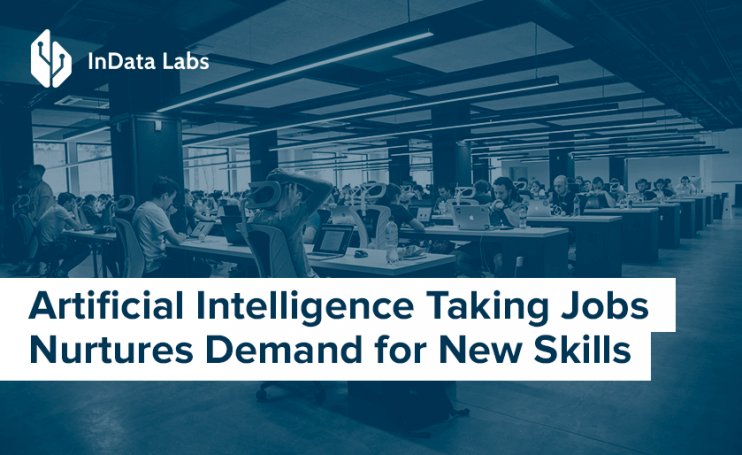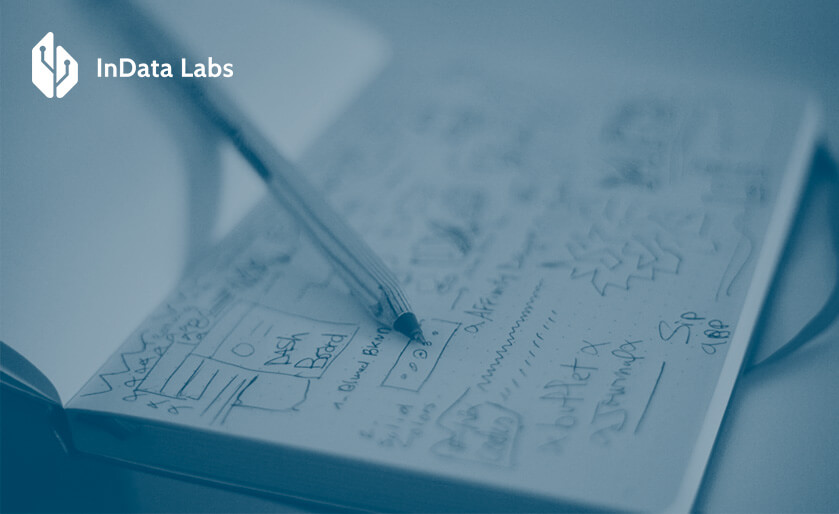There is no consensus on whether artificial intelligence (AI) replacing jobs across various industries is an alarming sign or a natural outcome of the Fourth Industrial Revolution. Anyway, the impact of artificial intelligence on jobs is too obvious to be denied. A hype-based viewpoint is that state-of-the-art technologies disrupt job opportunities and may soon empower machines to leave millions of humans out of their jobs. Is there anything to worry about, or is it an exaggerated problem? Nothing terrifying.
Perks of Automation for Your Business
AI can enhance any business that uses big data for growing and creating a competitive advantage. It means that AI-powered capabilities, such as intelligent process automation, data-based decision-making, predictive management, predictive analytics, and so on, can be of value for businesses of various size and industry.
Digital transformation yields benefits, that is, saving time and costs and driving new revenue, due to AI taking over multiple tasks. The result is the increase in productivity and more resource redeployment and investment options. However, these shifts trigger worries among employees about the growing capacity of technologies.
Your Staff May Worry About Implementing AI
Researchers estimate that 47% of total jobs in the US is jeopardized by automation and computerization. Robots excel in effective performing multiple tasks: one deployed per thousand human employees can cut off 6 or 7 workplaces and cause a decline in income up to 0,7%.
It may sound like a problem if not for the widely quoted prediction, that AI is going to create more new jobs than it eliminates. Job elimination is undeniable, but it won’t turn to be a catastrophe. Innovative technologies will foster the creation of unfamiliar occupations, as soon as new revenue-generating areas and brand-new approaches will be pioneered. To reaffirm this, according to Accenture, the risk of job loss to automation is declining.
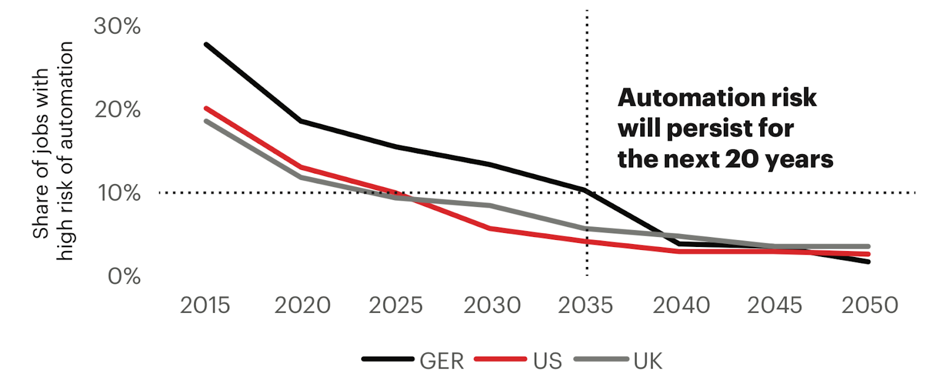 Source: Accenture.com
Source: Accenture.com
By 2025, it will amount to about 10% in Germany and the US, and about 15% in the UK. The same report claims that AI is going to double productivity.
There are no sci-fi machines powered by state-of-the-art technologies that can entirely replace employees. Artificial intelligence is trained to replicate many human abilities that makes it capable of taking jobs, but nothing such as creatively, abstract thinking, effective communication, or ability to adjust to a strange environment. Share on X The widening deployment of AI solutions will create the need for new skills, more education, and retraining. Various industries will be affected in different ways.
What Automation Really Brings to Businesses
Let’s dwell upon the meaning of AI. The dense cloud of hype around AI conceals that there are two concepts of AI: artificial general intelligence (AGI) and artificial narrow intelligence (ANI). ANI demonstrates a good pace of progress these days since it is designed to perform one thing. For instance, provide voice assistance, manage robotics elements, recognize and classify images, and so on. The capabilities of ANI can be extremely valuable to almost any business, in case AI solutions are deployed and applied correctly.
Nonetheless, media resources vigorously promote the concept of AGI. It presupposes building artificial intelligence systems capable of not only taking jobs but doing everything a human can do or even creating superintelligent systems to overtake humans in terms of speed and efficiency of performance. In fact, AGI shows little progress. There is a long way to go before the technological advance will enable some fantastic opportunities.
Ilya Kirillov, CEO of InData Labs, comments:
“Artificial intelligence is replacing jobs and reshaping the landscape of skills needed to keep in step with new job opportunities. But the machine-human collaboration has a positive effect on development overall.”
The analysis of leaders in various industries provides the following statistics on how AI-driven automation influences business development, on the one hand, and job elimination, on the other:
 Source: Raconteur.net
Source: Raconteur.net
The impact differs from niche to niche. However, the percentage of jobs lost to automation doesn’t go higher than 21% for the marketing and telecommunications industry. In all other cases, sounding the alarm about human replacement seems groundless.
Retail and E-Commerce: Automation Improves Sales
Most customers are happy to receive timely assistance and relevant recommendations. Traditional shop assistant job is giving way to AI and robotics. So, in San Francisco, Lowe’s chain has introduced LoweBot, an autonomous retail service robot that helps in-store customers find products and navigate the store. The services are available in multiple languages. Another store chain tests Tally, an autonomous robot to help customers track products and solve simple customer experience issues.
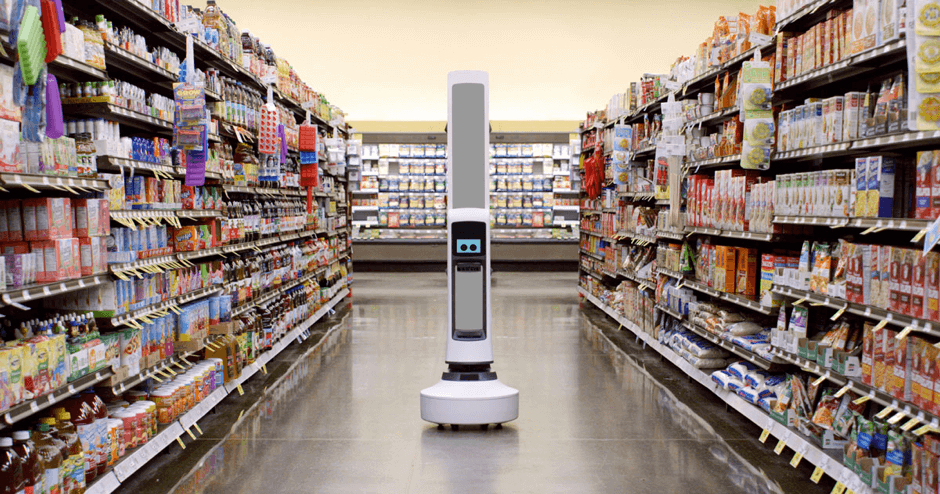 Source: Simberobotics.com
Source: Simberobotics.com
To ensure five-star customer experience for shopping online, service providers can adopt AI solutions, namely, implement recommendation engines. InData Labs readily assists businesses to solve this challenge. Clients come up with the need to improve sales by using ML models and seek reliable experts in the field. The most frequent request is to deliver a solution for generating cross-brand and single-brand recommendations. This option is meant to make the search process highly personalized, automate the tasks of shop assistants with the view to enable awesome online shopping experience and boost customer loyalty.
Healthcare: Artificial Intelligence Isn’t Taking Jobs But Boosts Personalization
When it comes to health risks, it should be noted straight away, that health professions aren’t on the list of jobs affected by artificial intelligence. But bots and analytics systems can act as personalized assistants. A good example is IBM Watson, a neural network that can monitor health indicators of patients, collect the data, and generate data-based predictions on health status. The system has already been deployed in several hospitals and even demonstrated the ability to detect cancer much earlier than medical professionals.
In the healthcare industry, AI can be successfully used to perform administrative tasks and assist in clinical trials. A most recent innovative application of AI in the niche has been announced by Estonian pioneers. They promise to implement AI that will conduct health monitoring based on personalized settings and tell people when to see a doctor. The solution will provide users with plenty of options to consider and will assist doctors in managing the patient flow more efficiently.
AI isn’t doing to replace medical professionals. Instead, it can solve the problem of labor shortage in healthcare. The gap is predicted to grow, as Accenture puts it, but AI could meet the demand by 20%. These capabilities should be leveraged to attain better results.
Taking Stock
Such giants as Amazon and Accenture allocate many hours and funding to retrain their employees without laying them off. The leaders assure that technologies are developed to work hand-in-hand with humans and augment the activities, for instance, support 24/7 processes, facilitate working with BI, provide humans with plenty of options to make informed decisions, process massive volumes of data, and perform other repetitive tasks that don’t require, say, human intelligence, creativity, and communication skills.
Artificial intelligence’s impact on jobs is going to trigger the emergence of unusual areas of specialization and change the nature of jobs. The tech-driven transformation causes shifting the focus from traditional sets of skills to new sought-after competencies. Business leaders will need a tech-savvy workforce as well as the assistance of AI consulting companies and PEO services providers to help with AI solution implementation and related training. Such an approach can contribute a lot to retraining programs, redesigning tasks, and putting more emphasis on talent acquisition and retention.
